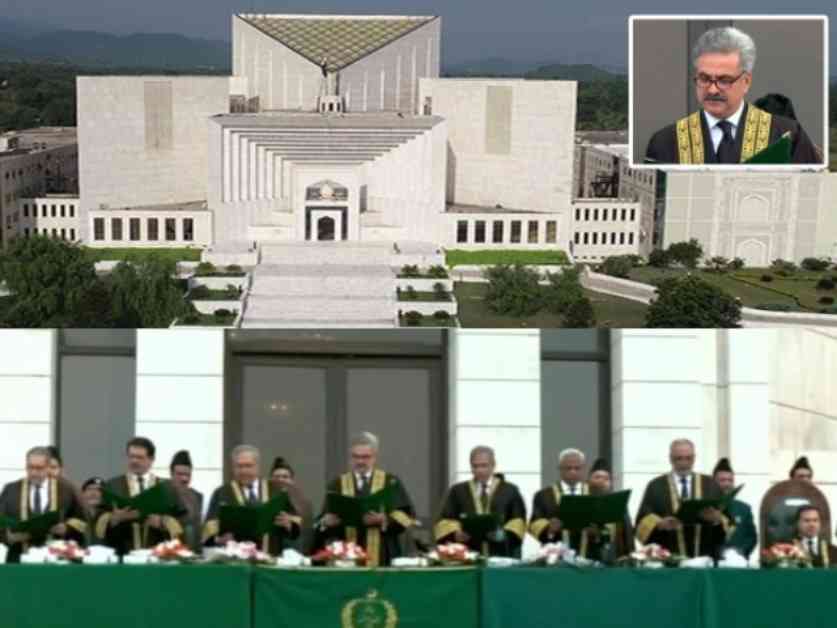The swearing-in ceremony for six newly appointed Supreme Court judges was held in Islamabad, presided over by Chief Justice Yahiya Afridi. The event marked the official induction of Justice Aamir Farooq, Justice Shafi Siddiqui, Justice Hashim Kakar, Justice Ishtiaq Ibrahim, Justice Salahuddin, Justice Shakeel Ahmed, and ad hoc judge Justice Gul Hassan to the highest judicial body in Pakistan.
Unprecedented Judicial Appointments
The newly appointed judges were nominated during a recent Judicial Commission of Pakistan (JCP) meeting, despite the absence of two senior Supreme Court judges and opposition party members. This decision was met with mixed reactions, as some members of the legal fraternity and certain judges had requested a delay in the appointments pending resolution of pressing constitutional issues and concerns.
The JCP, chaired by Chief Justice Yahiya Afridi, convened to review and approve the nominations, signaling a significant development in Pakistan’s judicial landscape. The meeting, however, faced challenges and protests, disrupting normal proceedings and leading to road closures in the vicinity.
Call for Delay and Controversy
Prior to the JCP meeting, a group of Supreme Court judges had appealed to Chief Justice Afridi to postpone the appointment of new judges until key constitutional matters, including the 26th Amendment, were resolved. This request was echoed by Pakistan Tehreek-e-Insaf (PTI) Senator Ali Zafar, adding to the growing calls for a delay in the judicial appointments.
The demand for a delay stemmed from concerns over the seniority of judges at the Islamabad High Court (IHC), raising questions about the timing and implications of the new Supreme Court appointments. Despite these appeals, the JCP proceeded with its deliberations and voting, ultimately confirming the nominations amid ongoing challenges and protests from various quarters.
As the legal and political landscape in Pakistan continues to evolve, the appointment of new Supreme Court judges has reignited debates and discussions on the judiciary’s independence, transparency, and adherence to constitutional principles. The swearing-in ceremony, held amidst a backdrop of dissent and uncertainty, underscores the complex interplay between legal, political, and institutional forces shaping the country’s judicial system.
In conclusion, the recent induction of new judges into the Supreme Court represents a critical juncture in Pakistan’s legal history, highlighting the delicate balance between tradition, reform, and the rule of law. As the newly appointed judges assume their roles and responsibilities, the broader implications of these appointments on the judicial process and public trust in the legal system remain subjects of ongoing debate and scrutiny.









